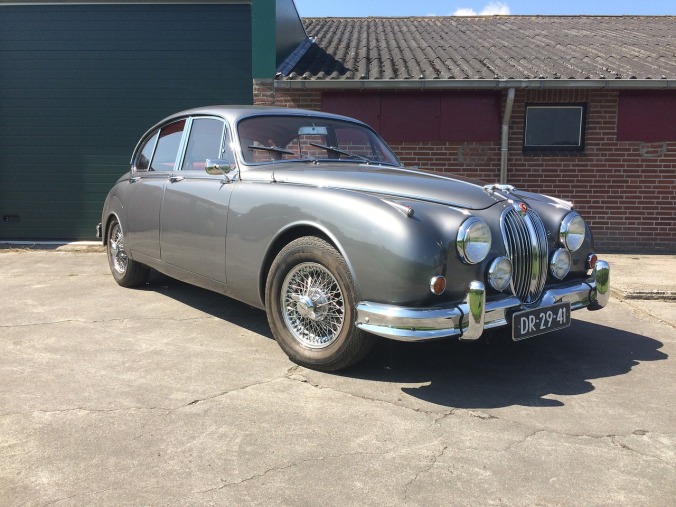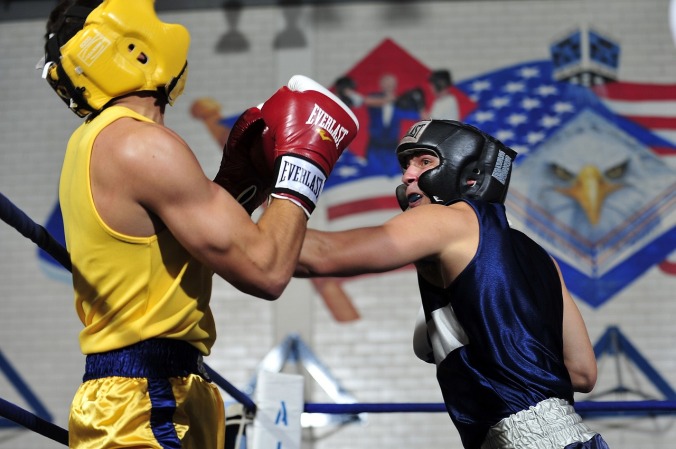
“You can just get out! GO ON! FUCK OFF!”
It was Sunday evening, and my wife Jackie had just discovered that I’d been having an affair with Andrea McGowan, an up-and-coming sculptor who was making quite a name for herself in artistic circles. We’d both known Andrea for a while, since we’d met her at a dinner party last year.
I suppose I should have known I couldn’t live the double life for ever. But I had hoped I could keep it up for just a little bit longer, because it really was such fun.
I knew that right now I had to keep things on track, stop my life spiralling out of control. For goodness’ sake, we have three children, a house with a mortgage.
“Please, Jackie, I’m sorry,” I begged.
“I bet Andrea was sorry when she found out what a disappointment you are in bed! That’s one comfort anyway—after all these years, I won’t have to put up with your clumsy fumblings anymore.”
“Please, listen! Andrea means nothing to me. Honestly, Jackie. If you want to know the truth, she’s been chasing after me ever since we met last year. And we’ve only slept together once—that was the one time it happened.”
“You expect me to believe that?” she snarled.
“Yes! You don’t know Andrea. She’s clingy, she’s halfway round the bend, and, if you want the truth, I think she’s pig ugly. I felt sorry for her, honestly Jackie, great hulking Amazon that she is. In fact I thought she was a dyke when I first met her. She’s not a patch on you.”
“Evidently she is. Otherwise why abandon me for her?”
“I didn’t abandon you!” I held her by the wrists, staring into her eyes. “She’s a stupid, ugly, scheming, manipulative cow, and I wish I’d never set eyes on her.”
“You’re saying you don’t even fancy her? When you had an affair?”
“It wasn’t an affair! It was a mistake, an embarrassing mistake. It was simply a very brief few moments that I’ll regret for the rest of my life. Once it had happened I was sick of the sight of her.”
She finally looked me in the eyes.
“In fact,” I went on, trying to press home my advantage, “as I said, I only started seeing her because I felt sorry for her. She talked non-stop, and she kept phoning me, chasing after me. It was pathetic. Andrea’s pathetic. She’s mentally ill, did you know that? And she’s a physical wreck too. You know she had that heart attack not long ago? She’s got a phobia about it, she’s always on about being scared of having another one and dying, especially as she keeps forgetting to take her blood-pressure pills. But she’s mentally ill too. Schizophrenia or something, she really scares me. I swear this is the truth, Jackie: right after we’d had sex for the first and only time, I looked at her and I felt physically sick. I honestly found her repulsive. She made my flesh crawl. I don’t know why I ever looked at her, let alone. . .”
There was a long silence. I hoped against hope that I’d said enough to finally placate her.
“Well, Mike, I’ve got a lot to think about,” Jackie said at last. “It’s too early to tell you how I’ll feel in future, but right now I can’t stand the bloody sight of you. So go. Go now. Before I pick up the carving knife and stab you through the heart. Drive off, and don’t bother to drive carefully. Crash into a wall and kill yourself for all I care.”
“Sure, sure, I’ll give you all the space you need Jackie. But on our children’s lives I swear—”
“—Don’t you dare bring the children into this!” she snapped, rounding on me and glaring at me as if I was something disgusting that was attached to her shoe. “Just do as I say for God’s sake and GET OUT NOW!”
Quit while you’re ahead is my motto, so I hopped it quick and got into the car, driving away without looking back.
I had no plans. Just a vague idea of heading to a motel, holing up there for a few nights, and spending my time going out to a pub and getting hammered. I guessed that time was the best friend I had, and if I let Jackie cool down for a couple of days, I could maybe go back, grovel for a while, and maybe, just maybe, things would be all right in the end.
Just as I’d moved to the middle lane to pass a truck I felt a sudden sharp stabbing pain in the back of my neck. My heart froze as I looked in the rear-view mirror.
Andrea was there, on the back seat. Leaning forwards and holding the handle of what appeared to be a very long sharp dagger, whose blade was sticking into the back of my neck.
“So I’m a psychiatric, stupid, pig ugly cow, who you find utterly physically repulsive, who makes your flesh crawl, whom you wish you’d never met? Who you thought was a dyke when you first met me?” She shouted above the roar of the traffic. “Strange thing, Mike. That wasn’t what you said when we were together all those times. I seem to remember you telling me your wife was sexually frigid and manipulative, evil and sly, and that she hated you and she had never understood you. That your marriage was a sham.”
I swallowed, but the act of swallowing constricted my throat, and it felt as if that action made the dagger stab more deeply. I was petrified.
“So, Mike, you’re now going to drive to my studio and we’re going to have a long talk,” Andrea told me. “My goodness, you do bleed a lot, don’t you? There’s blood running right down my hand onto the seat.”
What choice did I have?
So while I was panicking, s**t scared and frantically trying to remember if there were likely to be any major blood vessels at the back of the neck, and wondering whether I was bleeding to death, I took the next turn-off, to Waldegrove, the village where Andrea has her studio. She’s quite a successful sculptor, and she specialises in making lifelike models of people’s heads and scale models of horses and dogs, all in dark heavy bronze. It’s physically demanding work, and she’s a big strong woman—stronger than I am, as it happens.
“You see, Mike, I didn’t believe you were ever going to leave Jackie, as you told me you were. So I phoned her and told her what was going on between us, then, when you went home today, I slipped in through the back door of your house, and hid in the hall cupboard while you were talking in the kitchen. I reckoned she’d make you leave, so all I had to do was use those spare car keys you gave me to get in, ducked down in the back seat and wait for you to join me.”
“Those things I said,” I began, my voice trembling. “I didn’t mean—”
“—Save your breath, Mike. You didn’t mean them any more than you meant that your wife was a useless drone who stifled the life out of you, and you needed a sexy wild woman like me to help you to breathe. You don’t really mean anything you say, do you Mike? You’re just a treacherous, useless, turd. A disgusting vile arse-faced little worm.”
“I’m sorry.” I was crying now, weeping unashamedly, wondering if this was how I was going to die. “I’ll do anything, just please let me go. I’ll do anything I can. Anything you say.”
“Trouble is, I don’t want you to do anything, Mike. You see, in my naiveté I believed all the things you said, about how you loved me, and believed in me as an artist, how you’d back me and finance an exhibition of my work after you left Jackie and we were living together. How you’d miss your children, but you’d always put me first, even before your children.
Pain had begun to kick in where she’d stabbed me. I wondered if I could take a chance and stop the car and leap out.
“If you brake the car sharply, this razor-sharp knife will go deep into your neck, probably piercing right through into your gullet,” she said calmly, as if reading my mind. “I’m not wearing a seatbelt see? Won’t be my fault, I’ll not be able to stop myself tumbling forwards.”
“Oh God, Andrea, I’m sorry. Let me go! I’m begging you!”
“Shut up and drive.”
We parked in the small yard behind her studio, on its own patch of land at the end of a row of terrace houses. To my horror, I could see there was no one else around, no one I could call out to.
However, I realised something suddenly. I had one chance.
Just one.
As I got out of the car, she would have to take the knife away from my neck, and that was going to be my bid for freedom.
“Get out of the car, slowly,” she told me.
I opened the door, and, as I heard her open the door behind, I made the break.
Ducked down, rolled out into the yard.
But as I landed on my back, she was already on top of me.
There was no pain at all as she stabbed the knife into my abdomen. It hardly even bled.
“Oh my God,” I screamed, staring at the knife embedded up to the hilt. “I’m going to die!”
“I doubt it” she said coldly. “Remember Mike? I’m a sculptor, and I’ve studied human anatomy at art college. My guess is that the knife blade has penetrated your abdominal wall and is probably within an inch or so of an internal organ—probably lodged mostly in fatty tissue right now. I might have ruptured the liver. But if I’d punctured a lung you wouldn’t be able to breathe. Although I grant you, you might easily have serious internal bleeding.”
“Andrea,” I begged, “you’ve got your revenge. All this has gone too far. Please, can’t you just phone for an ambulance? I won’t say you did it—I’ll pretend I stabbed myself by mistake—or a mugger attacked me! Let me go, that’s all I ask!”
“Get up onto your knees.”
“Please!”
“DO AS I TELL YOU!”
As I managed to crawl up onto my knees, hoping that the movement wouldn’t open up the wound too badly, I felt her pull my wrists behind my back and snap something across to fasten them against each other, probably a cable tie. Tough nylon. Impossible to break. I felt the plastic cut into my wrists.
The dagger was still lodged in my stomach, and out of the corner of my eye I could see blood welling up around the handle.
“Stand up,” she ordered.
I tottered to my feet and she unlocked the door of her studio and made me go inside, flicking on the switch so the whole area was bathed in brilliant fluorescent light.
I’d seen this room so many times: benches along the wall, with metal armatures on wooden bases, models of people’s heads and of animals in the lovely dark-coloured bronze metal, a pile of brown modelling clay, white plaster crusting over all the work surfaces. In the corner were the large oxygen and acetylene cylinders and her welding kit, and there were hammers and saws and screwdrivers and power tools on shelves. And everywhere there was the chalky, earthy smell of clay and chemicals that I’d always previously associated with our exciting, illicit sex.
“I’m going to do something I’ve always wanted to try,” Andrea told me. “I’m going to make a death mask.”
“W-What’s that?” I asked.
“They used to do it a lot for famous people in the old days. The moment someone died, the sculptor was sent for, and he immediately applied wet plaster to the dead person’s face to make a mould that was an exact replica of his features, so they could then use it to cast a precise facsimile of the dead person’s face, in plaster or metal. But I’ve heard it’s not always that successful, because soon after death the facial muscles relax—you have to do it within minutes. Wait too long and it doesn’t look like the person at all—more like a lifeless corpse.”
“Y-you’re going to kill me?” I asked, my voice quavering.
“Oh no, Mike, what do you take me for? Of course I’m not.” She touched the handle of the knife, tweaking it slightly, creating a sudden barrage of agonising pain. “I’m going to do it while you’re still alive.”
That was more than I could stand. With hands still tied behind my back, I ran towards the door. But she was ready.
It was easy for her to trip me up. And when I fell I couldn’t put my hands out to protect my face. And when I hit the floor, the knife handle hit the floor too, forcing the blade inside me even deeper.
I was sweating with fear. I’m not ashamed to say that I couldn’t stop my hysterical weeping.
That was when I realised that all those lies I’d invented about Andrea—that she was a psychopath, insane, a freak, well I hadn’t realised it when I’d said them, but I could see now that they were all true. And I hadn’t even realised it at the time.
Andrea knelt beside me on the floor and gave me a sip of water. I’d suddenly become dreadfully thirsty for some reason. I wondered if it had something to do with blood loss: a steady pool of blood was oozing down from where the knife was embedded in my stomach, and I had a feeling that the wound in my neck was bleeding badly too.
I caught a whiff of myself and nearly retched. Hot fresh urine, the coppery smell of blood and overall the hard salty-sweet stench of my sweat.
“Right, climb up here,” Andrea ordered, leading me across to the couch in the corner of the studio. “Don’t worry. Your punishment is nearly over. Only a matter of minutes really. When I’ve finished the mask, I’ll release you and call an ambulance. You haven’t lost that much blood, and I haven’t punctured any of your major organs. You’ll be okay.”
“Why are you doing this to me?” I asked.
“Isn’t it obvious, Mike? You told me that your wife was a vile disgusting monster, and I overheard you telling her the same kind of things about me. That’s no way to behave, is it?”
Although I was crying and whimpering, I realised that she was telling me the truth. I simply had to put up with this final humiliation, whatever it was, and she’d let me go. Strangely enough, I didn’t think of Jackie, but of my children: Becky, aged ten, Jack, just seven, and little Ricky, the baby of the family, only two. They seemed to be the only thing that mattered in my life. How I longed to see them again.
So I climbed onto the couch, and laid flat on my back as Andrea told me to. I began to panic again as I saw her fastening large leather straps around my chest and legs, but there was nothing I could do to stop her. Besides, I had to cling on to the fact that she’d promised to let me go.
Then she smeared some kind of grease, like a kind of Vaseline, all over my face, telling me first to close my eyes. After that she went away, and I could see her adding white plaster powder to a small tub of water and mixing the plaster with her fingers.
“Now this is the tricky part,” Andrea said calmly as she returned. She produced two long cardboard drinking straws and then carefully inserted one end of each up each nostril of my nose. “You see I’m going to put wet plaster all over your face, so you won’t be able to breathe through your mouth,” she explained. “So you’ll have to breathe through your nose instead. Now don’t worry,” she went on. “Close your mouth and your eyes again.”
I’ve never been claustrophobic, but suddenly the very idea of what was about to happen hit home.
“My eyes? C-Close them?”
“Obviously!” She sounded mildly irritated. “For heaven’s sake, I’m going to put wet plaster all over your face—if it gets into your eyes you’ll be in agony and will probably go blind! Do you want that?”
I closed my mouth. I closed my eyes.
Then I felt the freezing cold wetness as she spread wet plaster onto my cheeks and over my closed mouth and also all around my nose and to surround the shafts of the straws. But the very worst part was when I felt the wet weight of the cold creamy paste on my closed eyelids.
The feeling was literally that of being buried alive.
I could hear, that was all. I couldn’t smell, I couldn’t taste anything. I couldn’t see. It was for all the world like being entombed in a coffin.
And then the most terrifying feeling of all.
I wanted to sneeze.
Eventually the urge subsided, but the awful craving yearning to suck in a huge lungful of air and sneeze it out, was so overwhelming that my chest burnt with agony. And with the urge to sneeze came another terrifying sensation.
Catarrh in my nose.
An hour before, my nose had been clear as a bell, but with my recent weeping, my nasal passages were beginning to block up.
I tried to raise my hands to tell her, but there were strapped behind my back.
I fought to break away from the straps holding me to the table.
I couldn’t.
I yearned to scream.
I couldn’t.
My heart was beating fast enough to burst. And in that moment I knew how it must feel to know that your end is inevitable. That moment when the medics tell your relatives in that blasé way they have that ‘the organs are shutting down’. And coupled with that terrible, terrible unearthly panic was the growing feeling of the heat of the wet plaster and the gradual sensation of tightening and increasing heaviness it had, pulling as it did against my skin.
“The plaster’s going hard now,” Andrea calmly explained. “That’s why it’s feeling hot, it’s the heat of the reaction. It’s already semi rigid now. Soon it’ll clamp tight around your face, and after that it’ll cool down. Don’t worry, not long to go now. When it’s rock hard I’ll pull it away from your face.”
She was going to release me?
Oh God, the joy of that thought!
I tried to cry fresh tears, but with my eyelids sealed shut and the plaster, that was getting heavier and heavier by the second, forcing them downwards, crying was impossible. Nor of course could I speak. My mind was a screaming blank void of panic. I yearned to have studied something like yoga.
I wanted to pray, but God help me, I don’t know any prayers, I’ve never bothered with church or religion. But in those seconds I believed in something, I prayed to some higher power to help me.
So I just said over and over again in my mind: “God help me, God help me, God help me.”
“There is just one thing,” Andrea said after she’d been silent for quite a while. “It’s quite interesting actually. As the plaster solidifies, it actually contracts.” She gave a nervous little laugh. “And I’m afraid that means that as it contracts around where the straw passes through it, the drying plaster sometimes tends to squeeze the soft card material of the straw.”
It was true. I had been able to breathe passably well, but on one side, the right, it was getting harder and harder to draw breath.
“Oh yes, I can see it’s happening,” Andrea said, giggling again to herself. “On the right-hand side, anyway. Looks as if it’s practically blocked. Oh well, the left-hand side one looks okay. At the moment anyway. You don’t want me to stop things now, do you Mike? The whole mask would be spoilt if I pulled it off now and I’m sure you can hang on for a few more moments until the plaster’s completely dry and I can release you.”
“Well, Mike,” she said after a few more seconds, which felt like hours. “I think you’ve suffered enough. I’ll take off the mask now, then I’ll set you free and I’ll call an ambulance.”
A massive wave of relief swept through me, coupled with the panic as I felt a noticeable decrease in the air going into my left nostril. I can’t describe the joyous relief as I felt her fingers prizing between my chin and the bottom of the mask.
Then suddenly those clawing fingers stopped moving. I couldn’t feel them against my skin anymore. Then I heard a crash and a gasping sound, as I pictured her falling to the ground.
“Oh God!” I heard her screaming. “My chest! C-Can’t breathe . . .”
For a few seconds I could hear her laboured breathing. That’s when I remembered her telling me about her heart attack of a year ago, how she’d been warned to avoid stressful situations, or she might have another one, possibly a fatal one the next time.
I heard the laboured ghastly straining sound of her breathing. Then a harsh rattling sound as her breathing suddenly came faster. My chest got tighter as I tried to breathe myself.
I fought for breath.
I fought and strained and struggled.
Until the darkness came.
* * *
I wrote this story, using my imagination to envisage the last hours of my poor dear friend Mike Edwards, who was found a week later in the studio of sculptor Andrea McGowan, who was dead on the floor beside the couch he was strapped onto, with a so-called ‘death mask’ on his face.
The inquest concluded that Mike’s death had occurred as a result of some kind of bizarre sexual fetish practice that had gone horribly wrong, when his ‘torturer’ died herself of a heart attack, and was unable to release him from the breath-restrictive mask.
That was the official verdict.
But we know different, don’t we?







 I pushed my friend from the first floor window ledge. His screams rang in my ears as I ran back home, crying my eyes out.
I pushed my friend from the first floor window ledge. His screams rang in my ears as I ran back home, crying my eyes out.
